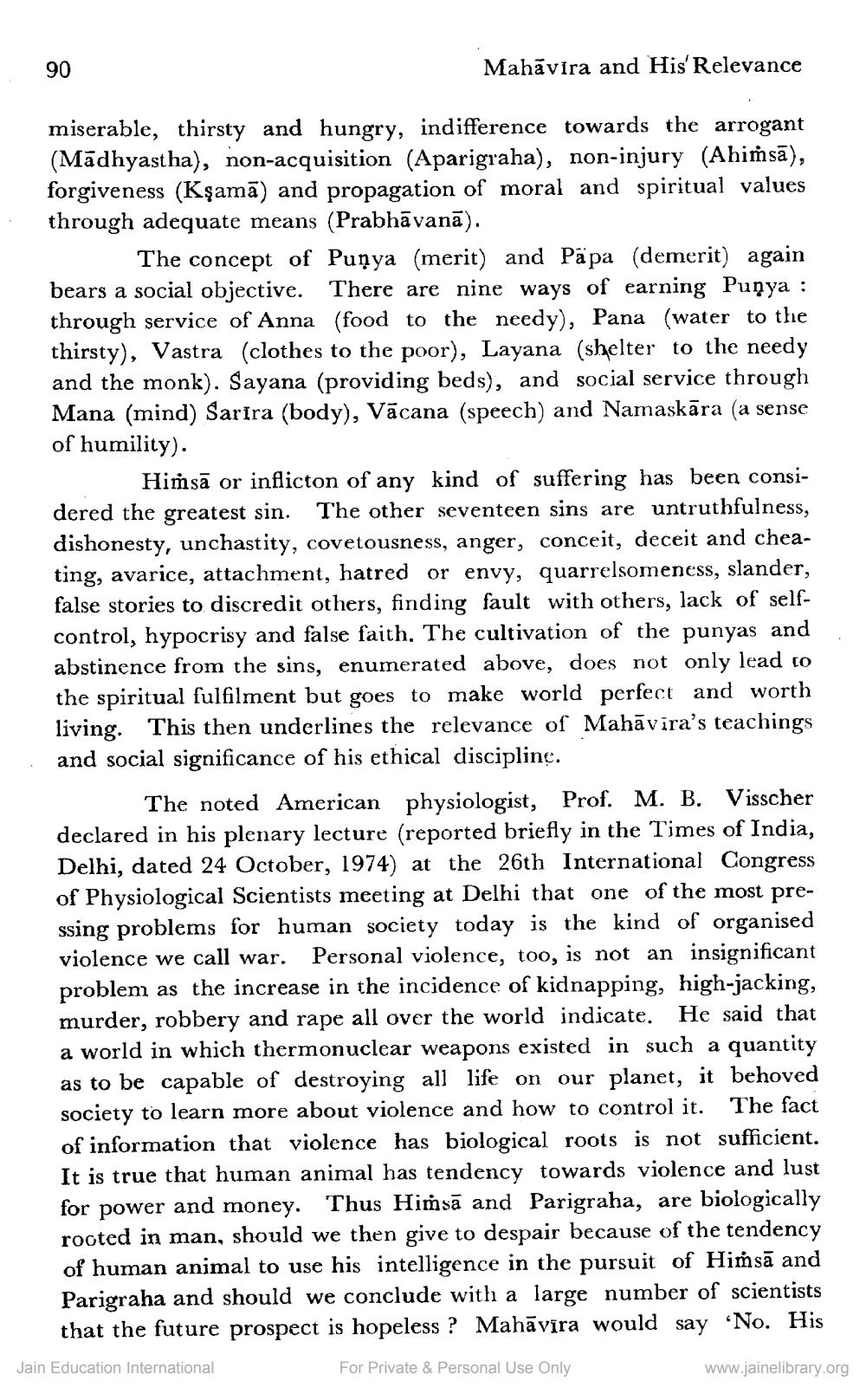________________
90
Mahavira and His' Relevance
miserable, thirsty and hungry, indifference towards the arrogant (Madhyastha), non-acquisition (Aparigraha), non-injury (Ahiṁsā), forgiveness (Kşamā) and propagation of moral and spiritual values through adequate means (Prabhāvanā).
The concept of Punya (merit) and Päpa (demerit) again bears a social objective. There are nine ways of earning Punya : through service of Anna (food to the needy), Pana (water to the thirsty), Vastra (clothes to the poor), Layana (shelter to the needy and the monk). Sayana (providing beds), and social service through Mana (mind) Sarira (body), Vacana (speech) and Namaskāra (a sense of humility).
Himsa or inflicton of any kind of suffering has been considered the greatest sin. The other seventeen sins are untruthfulness, dishonesty, unchastity, covetousness, anger, conceit, deceit and cheating, avarice, attachment, hatred or envy, quarrelsomeness, slander, false stories to discredit others, finding fault with others, lack of selfcontrol, hypocrisy and false faith. The cultivation of the punyas and abstinence from the sins, enumerated above, does not only lead to the spiritual fulfilment but goes to make world perfect and worth living. This then underlines the relevance of Mahavira's teachings and social significance of his ethical discipline.
The noted American physiologist, Prof. M. B. Visscher declared in his plenary lecture (reported briefly in the Times of India, Delhi, dated 24 October, 1974) at the 26th International Congress of Physiological Scientists meeting at Delhi that one of the most pressing problems for human society today is the kind of organised violence we call war. Personal violence, too, is not an insignificant problem as the increase in the incidence of kidnapping, high-jacking, He said that murder, robbery and rape all over the world indicate. a world in which thermonuclear weapons existed in such a quantity as to be capable of destroying all life on our planet, it behoved The fact society to learn more about violence and how to control it. of information that violence has biological roots is not sufficient. It is true that human animal has tendency towards violence and lust for power and money. Thus Himsa and Parigraha, are biologically rooted in man, should we then give to despair because of the tendency of human animal to use his intelligence in the pursuit of Himsā and Parigraha and should we conclude with a large number of scientists that the future prospect is hopeless? Mahāvīra would 'No. His
say
Jain Education International
For Private & Personal Use Only
www.jainelibrary.org




